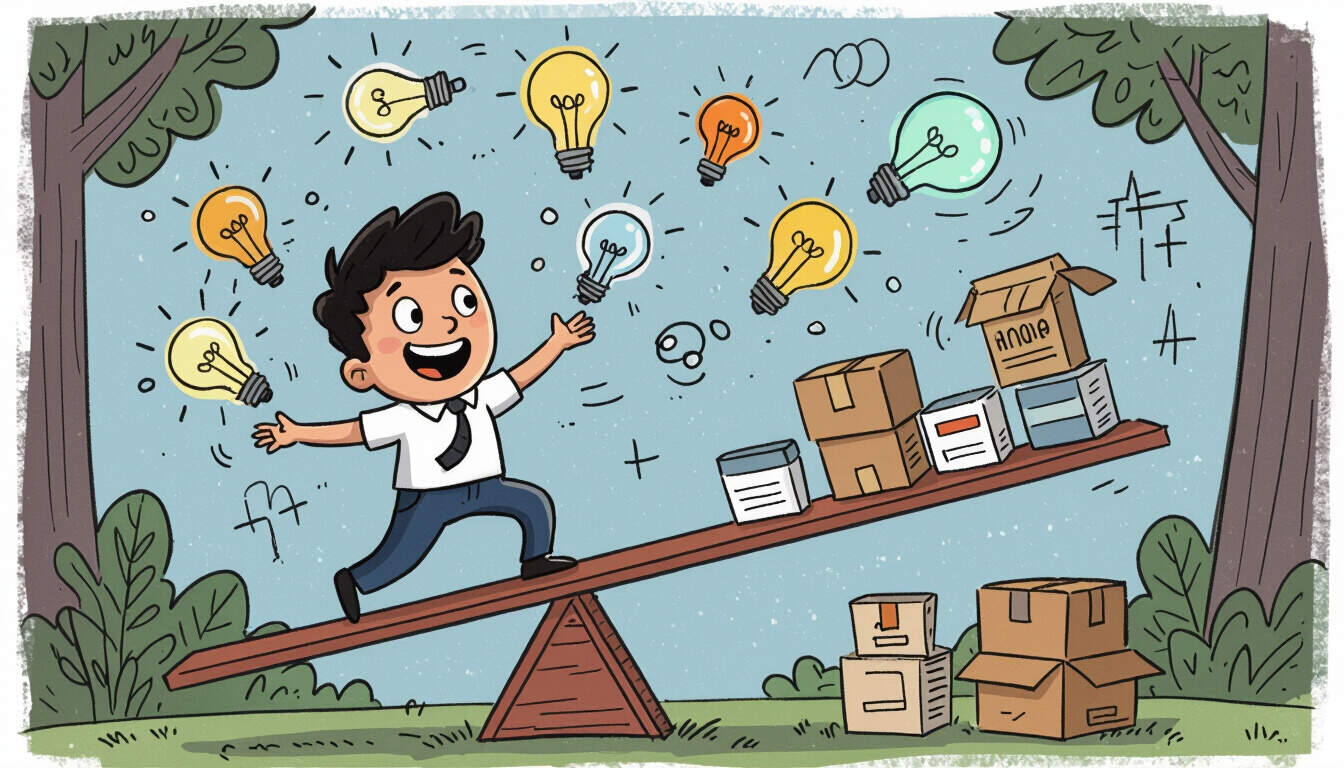The Product Development Lifecycle: A Guide for Entrepreneurs
 by Thaddeus Blanda
by Thaddeus Blanda
The product development lifecycle offers a structured path for turning ideas into market-ready innovations. This guide covers key stages, practical steps, and real-world insights to help entrepreneurs build successful ventures, fostering growth and innovation in business.

The product development lifecycle serves as a foundational process for entrepreneurs aiming to bring new ideas to life. This cycle helps in creating products that meet market needs and drive business success.
Key Stages of the Product Development Lifecycle
In entrepreneurship, following a clear structure can make all the difference. The first stage involves generating concepts. Entrepreneurs often start by identifying problems and brainstorming solutions. For instance, ideation allows teams to explore creative options without immediate constraints.
Once concepts are outlined, the next phase focuses on planning. This includes defining goals, resources, and timelines. Effective planning ensures that the project stays on track and aligns with business objectives.
Moving forward, the design stage brings ideas into tangible forms. Here, entrepreneurs work on blueprints and prototypes. This step requires collaboration among team members to refine details and ensure feasibility.
Testing follows as a critical evaluation point. Products are examined for functionality and user satisfaction. Feedback from early users can reveal issues that need addressing before full launch.
The launch stage marks the introduction of the product to the market. Entrepreneurs must prepare marketing strategies and distribution channels to reach target audiences effectively.
After launch, iteration becomes essential. Based on performance data and customer input, products may undergo improvements. This ongoing refinement helps maintain relevance in competitive environments.
Practical Steps for Entrepreneurs
To navigate the product development lifecycle successfully, entrepreneurs can adopt several strategies. Begin with thorough research to understand market demands. Gathering data on consumer preferences provides a solid base for decision-making.
Building a strong team is another vital aspect. Skilled individuals bring diverse expertise, enhancing the overall process. For example, including designers and engineers ensures that technical aspects are handled well.
Budget management plays a key role throughout. Entrepreneurs should allocate funds wisely across stages to avoid financial strain. Tracking expenses helps in maintaining control and making adjustments as needed.
Incorporating technology can streamline efforts. Tools for project management aid in organizing tasks and timelines, allowing for smoother progression.
Lessons from Entrepreneurial Experiences
Many founders have shared how the product development lifecycle shaped their journeys. Consider a tech startup that developed a mobile app. They began with basic sketches and iterated based on user tests, leading to a popular tool.
Another example involves a small business creating eco-friendly products. By focusing on quality during testing, they built a loyal customer base and expanded operations.
These stories highlight the importance of persistence. Entrepreneurs often face challenges, but staying committed to the process yields results. Learning from setbacks encourages innovation and growth.
In practice, adapting the lifecycle to specific industries matters. For service-based ventures, emphasizing customer interaction early can enhance outcomes.
Overcoming Common Hurdles
Challenges like limited resources or market shifts can arise. Entrepreneurs might encounter delays in prototyping due to material shortages. Addressing these requires flexibility and quick problem-solving.
Seeking partnerships can provide support. Collaborating with suppliers or mentors offers access to expertise and resources, easing the path forward.
Maintaining clear communication within teams prevents misunderstandings. Regular updates keep everyone aligned and focused on shared goals.
Inspiring Future Innovations
The product development lifecycle not only builds products but also fosters entrepreneurial spirit. By following this approach, aspiring founders can turn visions into realities. The satisfaction of seeing an idea succeed motivates continued effort.
Ultimately, this cycle encourages a mindset of continuous improvement. Entrepreneurs who embrace it position themselves for long-term success in their ventures.
